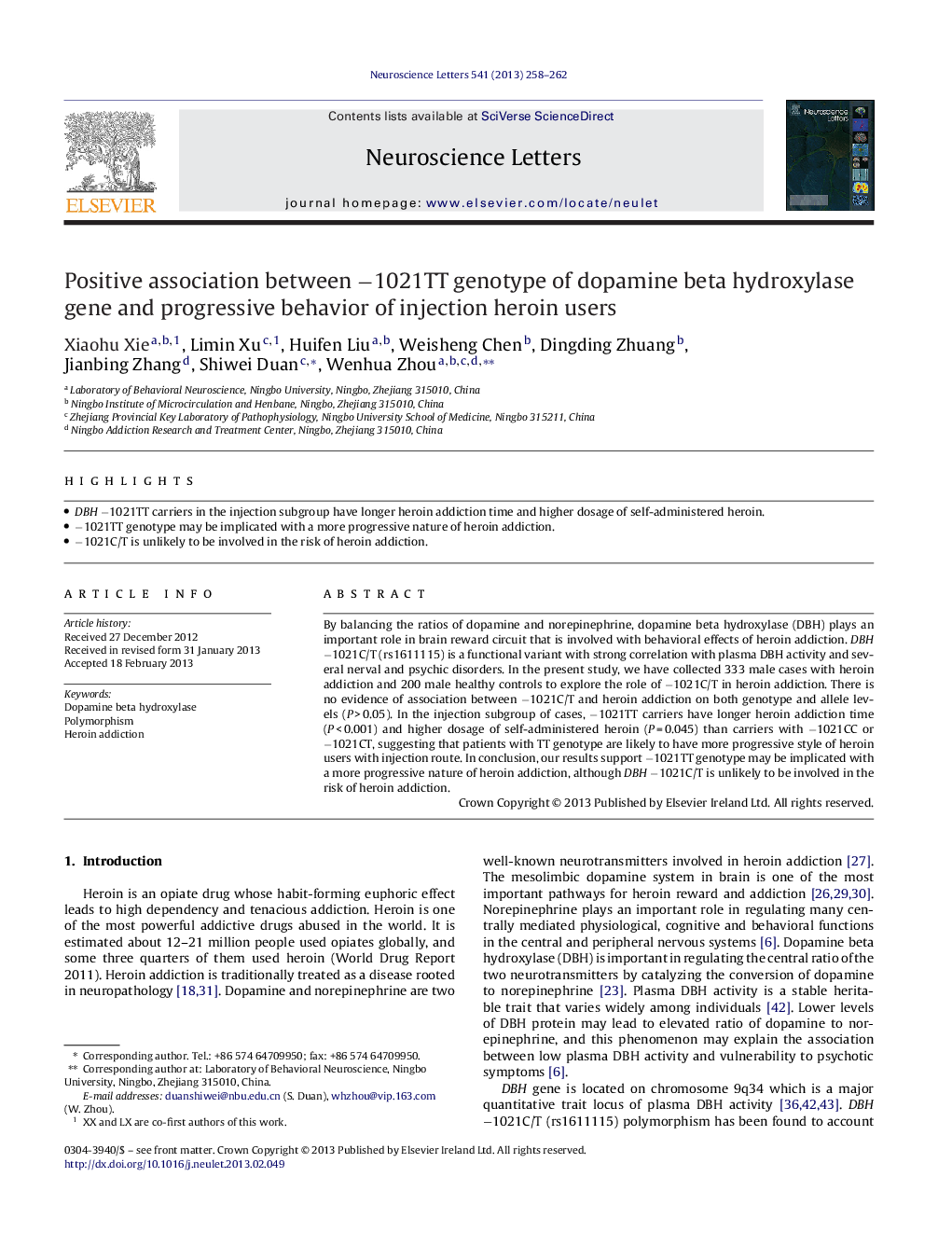| Article ID | Journal | Published Year | Pages | File Type |
|---|---|---|---|---|
| 6283163 | Neuroscience Letters | 2013 | 5 Pages |
Abstract
By balancing the ratios of dopamine and norepinephrine, dopamine beta hydroxylase (DBH) plays an important role in brain reward circuit that is involved with behavioral effects of heroin addiction. DBH â1021C/T (rs1611115) is a functional variant with strong correlation with plasma DBH activity and several nerval and psychic disorders. In the present study, we have collected 333 male cases with heroin addiction and 200 male healthy controls to explore the role of â1021C/T in heroin addiction. There is no evidence of association between â1021C/T and heroin addiction on both genotype and allele levels (PÂ >Â 0.05). In the injection subgroup of cases, â1021TT carriers have longer heroin addiction time (PÂ <Â 0.001) and higher dosage of self-administered heroin (PÂ =Â 0.045) than carriers with â1021CC or â1021CT, suggesting that patients with TT genotype are likely to have more progressive style of heroin users with injection route. In conclusion, our results support â1021TT genotype may be implicated with a more progressive nature of heroin addiction, although DBH â1021C/T is unlikely to be involved in the risk of heroin addiction.
Related Topics
Life Sciences
Neuroscience
Neuroscience (General)
Authors
Xiaohu Xie, Limin Xu, Huifen Liu, Weisheng Chen, Dingding Zhuang, Jianbing Zhang, Shiwei Duan, Wenhua Zhou,
